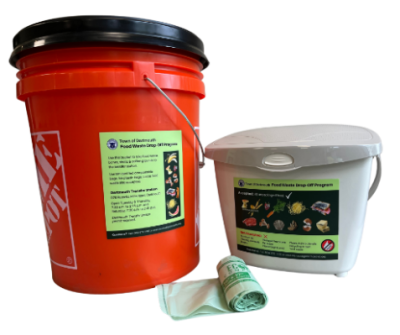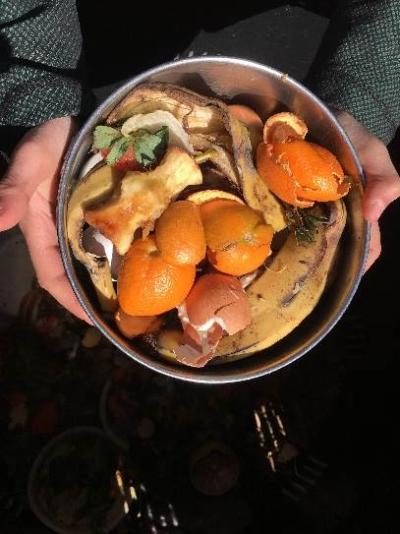Pilot Food Waste Drop-off Program launches June 18
Starting Tuesday, June 18, Dartmouth residents will be able to drop off food waste at the Transfer Station as a part of a new pilot program launched by the Greater New Bedford Regional Refuse Management District to help participants reduce waste and purchase fewer SMART orange trash bags.
Items that can be dropped off include all unpackaged food, bones and coffee grounds. Examples: fruits, vegetables, peels, meat, chicken bones, seafood shells, eggshells, dairy, breads, grains and baked goods.
According to Greater New Bedford Regional Refuse Management District, the food can be in any condition or past its expiration date. The unpackaged food can be loose, or in BPI certified compostable bags. Visit bpiworld.org for more information on BPI.
“About 20% of what residents dispose of is food waste. This program will help residents reduce waste at home, save money by using fewer orange SMART program trash bags and keep food waste out of the Crapo Hill Landfill,” said Timothy Barber, director of Public Works.
With the landfill’s existing cells anticipated to reach capacity in approximately five years, the department says the less that is added to it, the longer it will last. When the landfill reaches capacity, new options will need to be found for managing waste, but will likely be more expensive than the current costs at Crapo Hill.
The Dartmouth Transfer Station is located at 976 Russells Mills Road and operates Tuesdays and Thursdays from 7:30 a.m. to 3:15 p.m. and Saturday 7:30 a.m. to 2:45 p.m. A transfer station permit is required to use the facility.
To kick off the program, 100 free starter kits are being distributed to SMART Program participants, while supplies last. Each kit includes a kitchen counter bin, roll of compostable bags and a 5-gallon bucket for transporting the accepted waste to the Dartmouth Transfer Station.
Beginning June 17, 2024, starter kits are available at the Department of Public Works, 759 Russells Mills Road, Monday through Friday, 7:30 a.m. to 3 p.m. Proof of residency is required. On advertised Saturdays that the department office opens for residents to obtain program year 2024-25 transfer station permits, starter kits will also be available, while supplies last.
Here’s how to use the starter kit:
- Find a spot for the kitchen bin. Line it with a BPI certified compostable bag.
- Fill the kitchen bin with accepted materials.
- When the container is almost full, tie off the compostable bag and place it into the 5-gallon bucket.
- When the 5-gallon bucket is almost full, take it to the Dartmouth Transfer Station.
Those without a starter kit can put food in any container, such as a bowl, and line it with a BPI certified compostable bag — or don’t line it all. Any bucket will work to transport the food waste to the Transfer Station. Extra rolls of compostable bags are available at the department, while supplies last.
Materials not accepted include packaged foods, plastic bags, produce stickers, cleaning chemicals, diapers, glass, pet waste, aluminum foil, plastic wrap, plates, cups, utensils, recycling, trash and yard waste.
The carts designated for food waste are emptied weekly by a partnering company called Black Earth Compost, according to Greater New Bedford Regional Refuse Management District. The food waste becomes nutrient-rich soil amendment, which can be used for improving soil health, gardening and growing more food.
For more information, call the Greater New Bedford Regional Refuse Management District at (508) 979-1493, or email Marissa@gnbrrmdistrict.org.
















